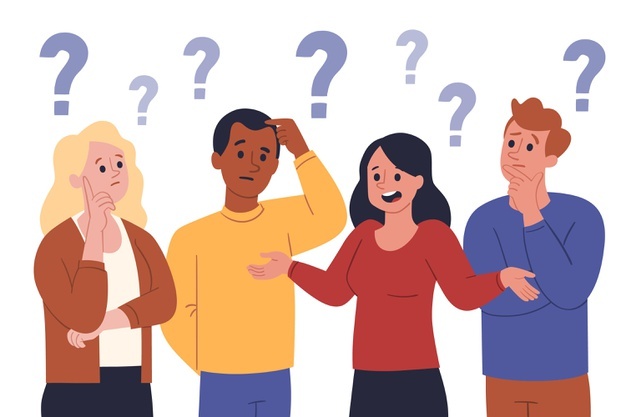Has it ever crossed your mind why people who are employed in a high-paying job still decide to shift into a career that pays way lower? Why do several people commit their money to charities, leaving only a diminutive portion of money for themselves? Or perhaps, do you wonder why a friend of yours suddenly turns into a religious person?
The answer to these common phenomena of human behavior lies within the theory of motivation.
American Psychologist Abraham Maslow puts his theory on the table, suggesting that humans are motivated by five categories of needs. From the bottom to the uppermost, the demands include psychological, safety, love/belonging, esteem, and self-actualization.
According to Maslow, the need for food and water is something people need and must satisfy first since it is a human’s lifeline. After which, a complicated essential need, for instance, self-actualization, is addressed.
The necessities of every individual rest on the preceding satisfaction of another more regnant need. Hence, in order to attend to the needs at the higher up, the needs within the lower down of the hierarchy must first be satisfied.
Understanding every category one by one will give you hints behind human behaviors that were mentioned earlier in this article. Let’s get started!
Physiological
Maslow’s Hierarchy of Needs is illustrated through a pyramid. The most basic needs of humans for physical survival make up the lower part of the pyramid, while at the top of the pyramid sprawls human’s complex needs such as esteem and self-actualization.
As living creatures, our most basic need deals with the sustenance and functioning of our bodies. In the lowest category in the hierarchy rests the physiological demands of a person, including air, food, drink, shelter, clothing, sleep, sex, and warmth.
A person cannot function optimally if these needs cannot be met. Maslow concludes that physiological necessities are the most instinctive needs since all other needs in the hierarchy are secondary.
For example, you just finished 5 kilometers run, hence, you are in need of a drink. You are so thirsty. You need water. Unless you satisfy your need to drink water, all other needs will become so trivial. If you fail to attain this need, you will struggle to perform within society suitably.
To put it simply, you can only progress and come in for more complex needs if you suffice your physiological need. Physiological needs greatly affect and dictate behavior in the extreme.
Come to think of this. You just completed a master’s degree in engineering, yet because of the recession brought by the Covid-19 pandemic, you’re having a real tough time landing a job. Do you think you would just rest at home, wait until the pandemic ends, and wish for an opportunity to come your way even when you have a lot of bills to pay? Of course, not!
In order to survive, you will seek out every option possible to land a job. Any job will be fine for you as long as they can serve their purpose of earning you even some few bucks, enabling you to afford your basic essentials.
In most instances, individuals working in a field way from what they have studied are subjected to a predicament, especially those from affluent families who have their families on their back to put food on the table.
However, despite the rough situation, what matters most is that the simple job, even though it’s not within your forte, can provide for your physiological needs. This allows you to achieve the next level of the pyramid.
Safety and Security
Once you have a job to support your necessities, you will probably be able to save up money to address your safety and security. For instance, you live in a poverty-stricken and chaotic neighborhood where there are many burglaries, drug abusers, and gang wars since you cannot afford good housing plans before.

With a job that supports your basic needs, you can now pay more attention to your safety and security need. And thus, relocate to a cleaner and safer place to live. Moreover, you can get insurance to cover emergency expenses and a retirement plan to secure your future.
Once this necessity is met, then again, you can go upward to the next need.
Love and Belongingness
After the physiological and safety needs have been achieved, the third level of needs to Maslo comes to the surface— love and belongingness.
According to Maslow, people want to feel a strong sense of belongingness and acceptance, whether it be a large or small social group. Humans crave interpersonal relationships, affection, connectedness, intimacy, acceptance, trust, and love. Even those who seem distant and introverted do.
This is probably one of the reasons why some people suddenly become active in the community, join games, and participate in socialization activities. They want to address is loneliness and the need for companionship since they can already furnish physiological and safety requirements.
Once the lower part of the pyramid gets fulfilled, humans tend to seek esteem.
Esteem
Esteem has two components. Firstly, confidence about self, skills, and accomplishments. Secondly, the feeling of getting valued by others. If the esteem demands are not met, feelings of inferiority will start to surface.
For instance, Lydia is working a high-paying job, yet she is not getting any value for her work. Or, although she is getting valued, she feels like she is not really meant for the job— not a bit passionate about it. She only applied for it because she had no other choice.

Lydia knows that her passion is for inventing things. And since she already has enough savings and a good investment portfolio to generate her stable income, she decided to quit her high-paying job to pursue her true dream.
Although there is no guarantee of high income to what she is trying to pull off, she decided to go for it because she knows she will enjoy it and never get tired of doing it over and over again.
Self-Actualization
In self-actualization lies the realization of an individual’s full potential. This varies from person to person. The American psychologist described this as the inclination to accomplish what one can and become the most of one can be.
Self-actualization can be achieved by recognizing the things you really want to do in life, and this could only be accomplished if a person has met what his esteem needs.
Before, Maslow’s hierarchy only revolves within these five, but he later added transcendence to the pyramid of needs.
Self-Transcendence
Transcendence takes place when a person’s values transcend beyond self. This is the pinnacle of human experiences.
Maslow theorized that the self only discovers its actualization by giving itself to some higher outside goal, including the pursuit of religion, nature, charitable acts, etc. This category is equated with the human desire to reach the infinite.
Only a few managed to reach this stage of life. There is Abdul Sattar Edhi, Mother Teressa, Albert Einstein, Nelson Mandela, and Abraham Lincoln, to mention a few. These people contributed and impacted society immensely.
By understanding Maslow’s theory of needs, you will be able to understand the psychology and motivation behind every human behavior. Hence, you will start understanding why people do what they do.
Through this theory, business owners can apprehend how to motivate their employees effectively, individuals can predict behavioral changes, and teachers can grasp ideas in creating a conducive learning environment.
Maslow’s Hierarchy of Needs is deemed to be among the most influential works in modern-day psychology.



